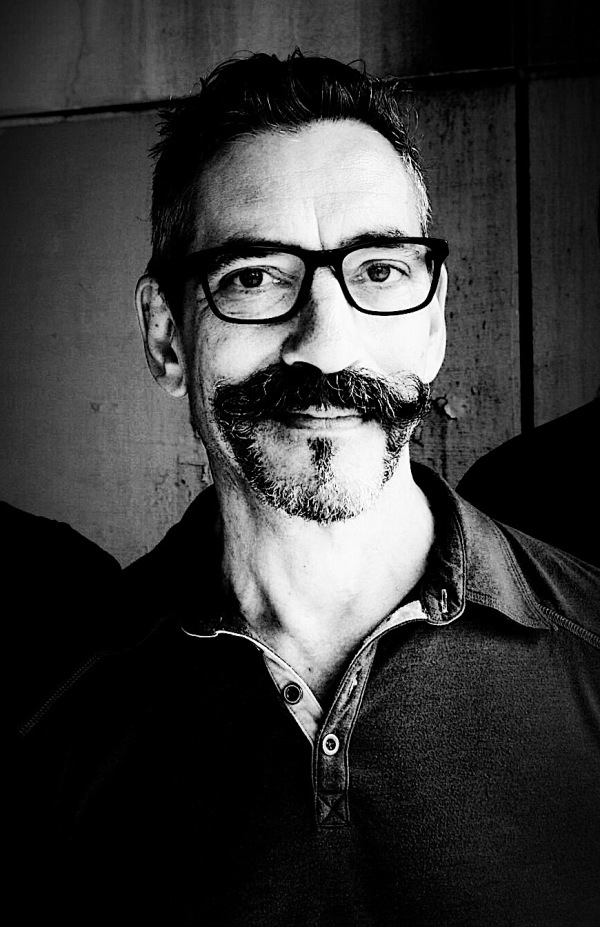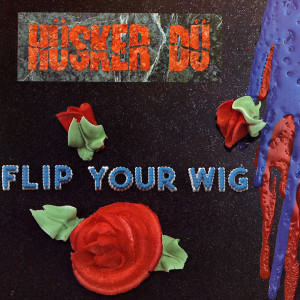BY JONATHAN VALANIA Five years ago, I went to Portland to profile Bob Mould for a MAGNET cover story. In the course of many hours of interviews, I asked Mould the question he’s been asked 457,876,621 times on the off-chance that the 457,876,622nd time he’s asked if Husker Du will ever regroup the answer would be different.
No such luck.
“There’s no need, there’s no need,” he says.”That band did everything it had to do the first time around. To try to put the lightning back in that bottle ain’t going to happen. You know, I’ll be really simple about it. Grant could stuff that lightning back in the bottle and I’d come and rip the cap off it. And vice versa. That tension and that friction made for, you know, that good — when the competition was in good nature and good spirit, it did great things. When it became destructive it destroyed it. And you just 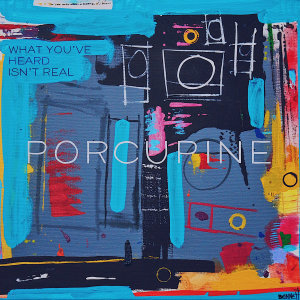 don’t go back to stuff like that. Nobody in their right mind should ever go back to something like that. You know, that was a great band, you know, great band. And there’s no way it could be as good in the future as it was even close to the end. So why bother?”
don’t go back to stuff like that. Nobody in their right mind should ever go back to something like that. You know, that was a great band, you know, great band. And there’s no way it could be as good in the future as it was even close to the end. So why bother?”
Why bother? I’ll tell you ‘why bother.’ Husker Du, along with REM and the Replacements, formed a troika of indie-rock royalty that produced some of the greatest music of the early to mid-80s. Nineteen eighty-four was their annus mirabilis. REM released Reckoning, The Replacements released Let It Be and Husker Du released Zen Arcade and New Day Rising. All three soon signed major label deals with varying results. The Replacements released four albums of increasingly diminished returns before limping across the finish line in 1991, not with a bang but a whimper. A reconstituted version of the surviving ‘Mats toured extensively for the better part of 2015 before pulling the plug again — perhaps permanently.
REM would, of course, go on to global stardom before eventually calling it a career in 2011. Husker Du lasted just two albums, the uneven Candy Apple Grey and the overlong and underwhelming Warehouse: Songs And Stories, having peaked creatively with 1986’s Flip Your Wig. Come 1988 the Huskers were history. But I saw them live back in the day and I’m here to tell you that from 1984 to 1986 Husker Du was The Greatest Fucking Band On Earth. Transcendental, supersonic, louder than bombs. Like The Byrds circa “Eight Miles High” being sucked inside the turbo engine of a 747.
That’s why I bothered.
But then in 2017 Grant Hart passed away — at the ridiculously premature age of 56 from liver cancer and Hep C, the cruel consequences of decades of intravenous drug use — rendering all talk of a Husker Du reunion moot. Nobody took the news harder than Greg Norton, the Sphynx-like bassist in Husker Du who nailed down their din with sly fox grin beneath his trademark handlebar mustache. After Husker Du imploded in 1988, and after a brief run with Grey Area, a band he formed with Husker Du audio engineer Colin Mansfield, Norton hung up his bass to pursue the chef life, opening a restaurant in Red Wing Minnesota called The Nortons’ Restaurant.
Ten years ago, Norton shuttered the restaurant, hung up his apron and started making his living a 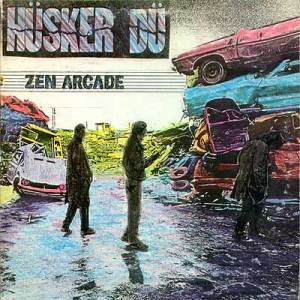 knowledgeable purveyor of fine wines to area restaurants. Concurrently, he pulled his bass out of storage, forming a short-lived instrumental band called Con Queso before transitioning into another short-lived band called Gang Font feat. Interloper. In 2016, he joined Minneapolis-based alt-rock mainstays Porcupine, who are currently on tour in support of their third album, What You’ve Heard Isn’t Real. Porcupine plays Johnny Brenda’s tonight with west coast punk legends The Flesh Eaters. Earlier this week, we got Norton on the horn. DISCUSSED: Wine, cooking, bass, mustaches, Porcupine, The Mary Tyler Moore theme song, how he met Grant Hart and Bob Mould, how Husker Du got their name, and why they went bust in 1988.
knowledgeable purveyor of fine wines to area restaurants. Concurrently, he pulled his bass out of storage, forming a short-lived instrumental band called Con Queso before transitioning into another short-lived band called Gang Font feat. Interloper. In 2016, he joined Minneapolis-based alt-rock mainstays Porcupine, who are currently on tour in support of their third album, What You’ve Heard Isn’t Real. Porcupine plays Johnny Brenda’s tonight with west coast punk legends The Flesh Eaters. Earlier this week, we got Norton on the horn. DISCUSSED: Wine, cooking, bass, mustaches, Porcupine, The Mary Tyler Moore theme song, how he met Grant Hart and Bob Mould, how Husker Du got their name, and why they went bust in 1988.
PHAWKER: Let’s start with Porcupine. You guys are out on the road as we speak, correct?
GREG NORTON: Yes we are.
PHAWKER: And how is that going?
GREG NORTON: It’s going quite well, actually. Tonight we’re in Grand Rapids, MIchigan. It’s night three of eight shows that we’re playing in support of The Flesh Eaters in the eastern leg of their tour. We started with them in St. Paul on Saturday night; we were in Chicago last night. We play tomorrow, then we have a big break on Wednesday from them because we are playing Albany Wednesday at The Low Beat, headlining. Then we’ll hook back up with them in Boston on Thursday. And then in Philly Friday, D.C. on Saturday, and then wrap it all up on St. Patrick’s Day in New York City at the Bowery Ballroom.
PHAWKER: Is this the first time being out on an extended rock-and-roll tour since the Husker Du days?
GREG NORTON: RIght after Husker Du broke up, I had a band called Grey Area and we did one kind of extended tour where we were out for a few weeks. That would have been in, like, 1989. So we made it through the Midwest, down to Texas, and worked our way back up to Ohio, Michigan, Chicago, and then home. Since then…ya know…since I’ve been in Porcupine, we’ve gotten out for, usually, long weekends. Last weekend we were out for three nights. This will be the longest trip in 35 years or 30 years or whatever. Starting tonight every place that I’ll be playing, with the exception of New York City, this will be the first time I’ve played in any of these towns since Husker Du broke up. And it’s gonna be my Grand Rapids debut.
PHAWKER: How does it feel to be back on the road? I think we’re roughly the same age? I’m 53 and you’re in your 50s as well, yes?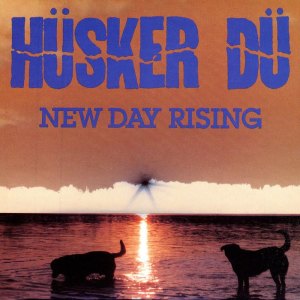
GREG NORTON: I will turn 60 on [March 15].
PHAWKER: Congratulations! How does it feel to be back on the road at 60?
GREG NORTON: Well, it’s definitely a lot of fun being back on the road. A lot of things haven’t really changed in the last 40 years as far as how it goes, ya know? You get in the van, you drive someplace, you wait, and then hurry up, then wait…load in, sound check, sit around and wait…play your gig, get the gear out. A lot of things are about the same. Yesterday on the way to Chicago, we were talking about how we have all been a lot of bands over the years and we remember being on that two dollar a day/three dollar a day per diem.
PHAWKER: So bottom line is…you guys are enjoying yourselves!
GREG NORTON: We are enjoying ourselves, yeah.
PHAWKER: I also think I read that you are a father again recently?
GREG NORTON: I was a first-time father at the age of 55. So my daughter, Coco, just turned four and a half, and then I’ve got a younger daughter, Stella, who is three and a quarter. So…two daughters very close in age.
PHAWKER: So what made you, at this stage of the game, throw your hat back in and start recording and performing with a rock and roll band?
GREG NORTON: Well, what got me back in was the opportunity. Ever since the first time I’d seen Porcupine, I had great admiration for Casey [Virock] and his songwriting and guitar playing. I hadn’t seen them for a while, so when I first joined the band was my first opportunity to meet Ian [Prince] and play with him and he’s…he’s a pretty good drummer. [laughs] He’s sitting right here. Ian’s great. Playing with these guys is a lot of fun. We all know what we’re doing and what’s going on. There’s not a lot of bullshit. We had an interview a couple months ago and I made a comment about how it’s nice being in a band not being distracted by the folly of youth, and the interviewer was like “Well I’m 26…what do you mean by that?” And I’m like “Hehehe…well…”
GREG NORTON: Yeah. You do this because you love the music, and you want to get out and play it. And that’s what we’re doing. There are no ulterior motives for why we are at work on the road — except that it sells some merch.
PHAWKER: How would you describe the Porcupine sound? I haven’t heard the previous albums; I’ve only heard the new ones. I’m assuming they’re not incredibly dissimilar. How would you describe the sound of the band or the vibe you’re going for?
GREG NORTON: Obviously a power trio. Driving rhythm section. The way we’ve been putting the music together has had a rhythm section where it kind of has the chance to stand out and propel the music along. And Casey kind of frames everything up with the guitar work, and kind of layers his vocals over the top. I would imagine some people would be able to go, like, “Oh, you can pick out this influence, that influence.” But I think all three of us have a very distinct sound that works really well together.
PHAWKER: Last I’d heard, when Husker Du had sort of imploded, you had gone off to pursue cooking. You became a chef; you opened a restaurant. Where does that stand? Is that still your day gig/your forte?
GREG NORTON: No. I got out of the restaurant business about ten years ago. I do not miss it. I certainly don’t miss the hours, although the hours in the restaurant business and in rock and roll are kinda similar as far as late nights and stuff like that. But no, I got out of the restaurant biz…and there are relationships with customers and things like that so…you miss seeing those people on a regular basis. But in a sense, though, [leaving the restaurant business] also got me to a point where I enjoy cooking again. It’s different when you’re just gonna sit down and cook for your family or yourself or your friends, as opposed to “Let’s see if we can run through 150 covers here tonight.”
PHAWKER: So you got out of the restaurant business ten years ago. May I ask you what you picked up in the absence of that?
GREG NORTON: Well, I guess I didn’t totally get out of it. I work for a wine distributor now. We import wines and work with some domestic/U.S. producers. I go around to restaurants and retail outlets and I sell them fine wine. 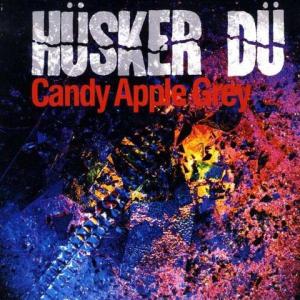
PHAWKER: That definitely seems like a much easier job than slaving over a hot stove.
GREG NORTON: Yeah. Like any job it’s got its pluses and minuses. I have a book that is small wineries, family owned producers. And when I started selling wine, I’m like “OK, this is sorta like record stores.” You have your stores that are only interested in the top 40 and then you’ve got your stores that are looking for what’s the next underground thing or the independent label or whatever. So that’s kinda more the territory that I exist in. I’m not out pushing grocery store brands that are stacked up everywhere. It’s families, not factories. Real wine.
PHAWKER: Are you a wine enthusiast/connoisseur or is this just a job unconnected from your personal interests/tastes?
GREG NORTON: Well, when I got into the restaurant business and went to start putting together a wine list, I had to start learning about wine. And so that became sort of a side passion. And I was a wine buyer in the restaurant for 16 years. So it’s a natural progression to step over to the sales side of it. It’s one of those things like…you don’t think you really know anything, but then someone will ask you about something and you start telling them about it and say, “I guess I do know a couple of things.” It’s like anything in life; there’s always so much more to learn and pursue and discover. It keeps it fresh and interesting.
PHAWKER: I must confess, I know almost nothing about wine except that I can enjoy a fine glass.
GREG NORTON: The only rule when it comes to wine is to drink what you like.
PHAWKER: Would you indulge me and let me ask you a few Husker Du questions?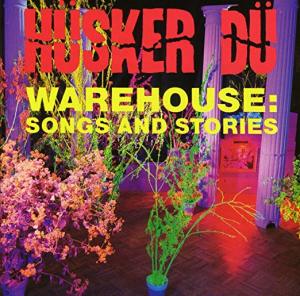
GREG NORTON: Sure!
PHAWKER: So, two quick Husker Du war stories to establish my “Du bonafides,” if you will. My girlfriend first saw you guys in a basement in West Philly. This was probably circa Zen Arcade, and that basement probably fit 12 people but they somehow crammed about 100 in there she said.
GREG NORTON: And they had closed circuit TV—television.
PHAWKER: Oh, you remember this?!
GREG NORTON: Oh yeah! We did a couple of gigs there. But that first one definitely was stand-out. And just looking out over the people that were in that basement who were moving was like watching the ocean rolling in. It was just crazy.
PHAWKER: She wound up having to sit — she’s a small person — and she had to sit on a washing machine. And she would like you to know that she lost her shoe, and she still wants it back. I don’t know if you guys could do anything about that, but I just wanted to throw that out there.
GREG NORTON: [laughs] Don’t think I can help there.
PHAWKER: Second of all, I saw you guys at Love Hall in Philly with Soul Asylum circa Flip Your Wig. Love Hall no longer exists, but the first of two things I recall at that show was 1) There was a long line to get in, stretching for a couple blocks. And I remember overhearing somebody in line describing you guys as ‘Midwestern farmers doing supersonic covers of The Byrds circa “Eight Miles High.”’ Which is kinda how I remember you guys sounded that night, which is pretty awesome. Secondly, someone did a swan-dive off the balcony expecting the crowd to catch him and, in classic Philly crowd style, instead of catching him…everybody just scattered and he wound up belly flopping onto the hardwood floor.
GREG NORTON: I do believe I recall that, yep. 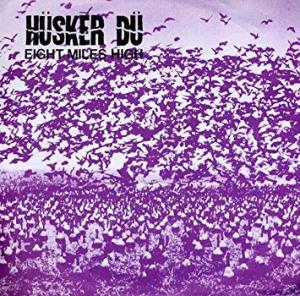
PHAWKER: I’m impressed. I would have thought these would have all been lost in the mist of time. I can barely remember them. I applaud your memory. Let’s really test it. What do you remember about the first time you met Grant, and what do you remember about your first time meeting Bob? Your impressions, the circumstances, or anything that sticks out?
GREG NORTON: The first time I met Grant, I had just started working at a record store in a mall in West St. Paul, Minnesota. I was on a break, and he was like, “Hey, you’re the guy that took my job.” And I’m like “What are you talking about?” And he’s like “Well, the manager’s been telling me that she was giving me a job at the store, but then she hired you.” I’m like “My buddy Bill is the assistant manager. Let’s go talk to him.” So we went in and talked to Bill, and Bill said he would talk to Sharon and then Sharon’s like “Yeah, let’s hire him too.” So that’s how Grant and I met, and we started working at this record store together. The store was owned by a guy who had another store on the Macalester College campus called Cheapo. And Bob in ‘78 was a freshman at Macalester. He met Grant one day because grant had a PA speaker out on the sidewalk hooked up to the stereo and was blasting the Ramones on the street. And Bob was walking by with his brand new Johnny Ramone haircut and his brand new leather jacket and was like ‘Hey I like the Ramones.’ So that’s how Grant and Bob met. Then I’d kinda met Bob just briefly a couple of times. But my first time of really hanging out with Bob was when Ramones did a tour opening for Foreigner in the fall of ‘78.
PHAWKER: Wait…the Ramones opened for Foreigner?
GREG NORTON: Yep.
PHAWKER: Holy cow…OK go on.
GREG NORTON: And so they had the band coming through St. Paul, Minnesota and playing at the old Civic Center Arena. And so we’re all going ‘We gotta go!’ So we buy tickets. Grant picks Bob up from Macalester and brings him to my house in Mendota Heights and we’re just kinda hanging out to get ready to go see the show. And it was right before Thanksgiving. I was making small talk and I was like, ‘Where ya from?’ He was like ‘I live in upstate New York.’ I said ‘Well are you going home for Thanksgiving?’ And he said ‘No, I’m probably just gonna stay here.’ I said ‘Well what do you do for Thanksgiving dinner?’ And Bob’s like ‘Oh I’ll probably just sit in my dorm.’ And my mom said ‘Well you can’t do that. You should come here and have dinner with us.’ I’m like ‘Mom, you just invited this guy over to our house for Thanksgiving dinner? You know this is kinda really the first time I’ve met this guy, right?’ So Bob did come over and have Thanksgiving dinner with us that year.
Then in early January this guy Charlie Pine — who was the manager at Cheapo Records — Charlie, Grant, 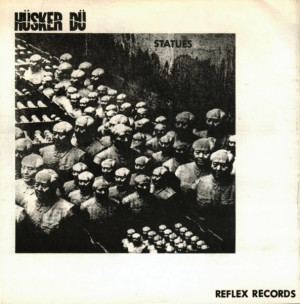 myself and a couple of other people were at this dive bar, and Charlie came back to the table and was like ‘Hey, Grant, we have to put a band together because I just booked a gig. I saw that they had bands and the bartender said, “You got a band or what?” And I said “Yeah we’re called Buddy and the Returnables.”’ And the guy’s like ‘OK you can play March 30th and 31st.’ So Grant’s like ‘Well I know this kid at Macalester who’s got this Flying V guitar.’ And so we brought Bob to my house, because that’s where Grant’s drum kit was set up, and the three of us jammed on some Ramones tunes. And then Bob and Greg were like, ‘Yeah I think Greg can handle the bass duties.’ (Originally Grant was thinking about asking this other guy they knew.)
myself and a couple of other people were at this dive bar, and Charlie came back to the table and was like ‘Hey, Grant, we have to put a band together because I just booked a gig. I saw that they had bands and the bartender said, “You got a band or what?” And I said “Yeah we’re called Buddy and the Returnables.”’ And the guy’s like ‘OK you can play March 30th and 31st.’ So Grant’s like ‘Well I know this kid at Macalester who’s got this Flying V guitar.’ And so we brought Bob to my house, because that’s where Grant’s drum kit was set up, and the three of us jammed on some Ramones tunes. And then Bob and Greg were like, ‘Yeah I think Greg can handle the bass duties.’ (Originally Grant was thinking about asking this other guy they knew.)
So that was it: Bob, Grant, and Greg are now in a band with this Charlie Pine guy and, at the first rehearsal, we told Charlie we didn’t want to be called Buddy and the Returnables because that meant he was Buddy and we were the Returnables. So he’s like ‘Well, what do you want to call us?’ And I’m like ‘Let’s call us Husker Du. It’s Danish and it means “Do you remember?’ And everybody kinda went along with it. And so Grant made a poster that said ‘Husker Du: first time in the USA at Ron’s Randolph Inn on March 30th and 31st.’ And so, at the end of this month, that will be the 40th anniversary of those shows which started the three of us playing together as Husker Du with the fourth. But those first two gigs were three sets of cover tunes.
PHAWKER: So you always wanted to have a band with the name Husker Du? You had that name in your mind?
GREG NORTON: Well, probably some time between Thanksgiving and this night at the Randolph Inn, Grant and I were just hanging out in my basement being stupid kids and Grant was singing Psycho Killer” but he was making up different words. And I think he was like “Psycho blender” or “Psycho chicken”. And instead of saying “Qu’est-ce que c’est”, I threw out Husker Du and we thought it was funny and we laughed. And also Husker Du, back in the late ‘70s…the company that marketed the game got in trouble because they got busted for inserting subliminal messages into their television ads. And so it was one of those things where it was kinda the name and the game where fresh on our minds or whatever. And the fact that it meant “Do you remember?” The children’s game where the children can outwit the adults and all this stuff. I threw it out to Bob and Grant, they thought it was OK and there were three votes against Buddy and the Returnables so Charlie went along with it. And that’s that.
PHAWKER: I was not aware of the subliminal messaging. These were the TV commercials? Were there words or images that were flashed on the screen?
GREG NORTON: They were flashing a message that said BUY IT.
PHAWKER: [Laughs] Subtle. So at the time, I remember you guys had this very “anti” image. It was probably the most punk rock thing about the band, I think. Grant was this barefoot, long-haired hippy guy and Bob was this sort of schlubby, middle-aged looking guy. And you had the most rad look of all. You had this crazy handlebar mustache. Thirty-five years later the hipsters have finally caught up to your coolness, but back then, it was total cognitive dissonance. Nobody outside of Tom Selleck had that look 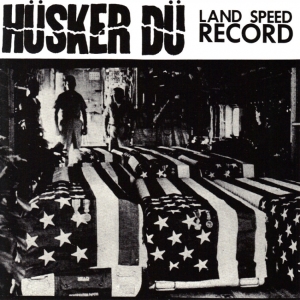 going, especially in the punk rock scene. Tell me about the origin of that look, i.e. the handlebar mustache that you are still rocking to this day.
going, especially in the punk rock scene. Tell me about the origin of that look, i.e. the handlebar mustache that you are still rocking to this day.
GREG NORTON: It was kind of out of necessity in a sense. We did a tour at the end of ‘82 or the beginning of ‘83. And I left to go out on the road and forgot my shave kit. So I went that entire tour without shaving. The mustache started getting longer and longer and then we were up in San Francisco on Broadway and we were doing a show with Black Flag. And I think DOA was on that bill too. And I was kind of complaining to [original Black Flag frontman] Dez Cadena about that. I’m like ‘Yeah I like the mustache, but the hair is so long now that it keeps getting in my mouth.’ And he’s like ‘Ah, you should just push it up outta the way…maybe like twist it up or something.’ And I’m like ‘Hey, that’s a good idea.’ So I started kinda pushing it up and twisting it up. I liked the handlebar mustache look and it just stuck.
PHAWKER: There was always this competition between Grant and Bob as songwriters. Kind of a Lennon and McCartney thing. At some point this was a healthy relationship, but ultimately it grew toxic and led to the end of the band, the dissolution of their friendship, etc. First of all, is that an accurate assessment of the broad strokes of the situation. And secondly, when did this transition happen, and why in your estimation?
GREG NORTON: Well, I should start out by saying that all came to a head when we signed to Warner Bros. and started working on Candle Apple Grey,/font> At one point Bob told Grant that he would have more songs on the record than Grant would. Plus Bob recorded “Too Far Down” as a solo thing, and Grant’s like ‘Well, I’m gonna put a solo song on the record too.’ And so he records, “No Promise Have I Made.” It started getting kind of tough and contentious there.
And then when Warehouse: Songs And Stories rolled around and we were working on that stuff. I kind of bowed out of the songwriting for Candy Apple Grey. But yeah, I wanted to get back into it for Warehouse, and I contributed every time and Bob would just always say ‘Yeah, there’s just no place on the record for that song.’ So it ends up being a non-LP B-Side on a limited 12-inch that was only released in the U.K. It’s like ‘Oh thanks for that. I’m glad you really think highly of that song.’ But at that point it was tough. It reminds me of an interview I read with George Harrison where he’s like: ‘Well shit, during the Beatles recording sessions I’d come in and I’d have song ideas but we always had to do John’s and Paul’s first.’ He goes, ‘We knocked out “My Guitar Gently Weeps” in the matter of an afternoon, and I think we could have developed it more.’
In a sense, for me, it was tough bringing material in and knowing that these guys were not really taking it seriously. I think Bob started to think Grant wasn’t bringing his best material to the band and stuff like that. It got weird and it got ugly. I think another thing that contributed to all of that is, once you sign to a major label, a lot of the stuff you’ve always done by yourself is now being taken care of by somebody else. And I think as each little piece of that got removed from Grant, he kind of resented it and got bored and…it was kind of just a difficult situation.
PHAWKER: So how would you characterize your relationship with Bob currently? And how would you characterize your relationship with Grant prior to his sad passing? Were you guys connected at all? 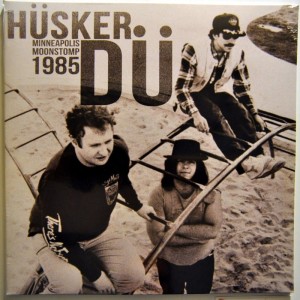
GREG NORTON: Well, we’re opening for Bob March 30th at the Palace Theater in St. Paul. I was kind of surprised that I got the email from Bob saying ‘Hey, I’ve kept the support slot open for Porcupine in case you guys were interested.’ So yeah, I’m thrilled we’re on that bill, but prior to that, the last time I saw Bob was the day his memoir came out and he was…ya know…he was a little frosty. And prior to that, I hadn’t seen him since 1993 in London. I lived in London that summer, and that was the year we were working on The Living End and Warners had couriered the contracts to me in London to bring them to Bob’s Sugar show at Brixton Academy to get them signed. And he writes about that in the book, but his version of that situation in the book is not accurate at all. I didn’t see Bob at all until the very last minute. And I had to catch a tube back up to Bloomsbury to where I was staying. So those are the only two times I’ve seen Bob in…26 years?
PHAWKER: I actually did a cover story about Bob for a magazine called Magnet and I spent a bunch of time in Portland with him when that happened. It was just after the book came out so we went through a lot of Husker Du history. And the one thing that we talked about was…I asked—again, tell me if this is crossing the line, or getting too private or personal—but I said I read an account that said you guys were suing SST over unpaid royalties. This was around 2000/2001 or something like that. And the account I read was that he bought both you and Grant out of your shares of future royalties. I just went back and reread that, and he said it as very expensive to file a lawsuit like that in California—costing about 50 grand—he said that he offered to cover the legal costs if you guys would basically give him power of attorney and decision making in the pursuit of those legal proceedings. And then he said that he went back and looked at the contract and he paid out each of you guys, like, $15,000. It was never clear to me whether he was acknowledging or denying the story I was asking him to validate, but he concluded that whole soliloquy in saying, ‘I could see how somebody would think that that’s what happened. That I was buying them out, etc. But that’s not really the case.’ Can you lend any clarity to this?
GREG NORTON: I almost don’t want to comment on it because Bob seems like he’s in a really good place these days. And he reached out and put us on the bill, which is kind of a rare thing. And, ya know, Bob is kinda in a different situation. Maybe Grant’s passing had something to do with that. But his account doesn’t necessarily jive with what you heard and my experience with it. But maybe that’s what Bob believes happened. Maybe his lawyer told Bob, ‘We’re trying to get the power of attorney.’ But his letter didn’t say ‘Sign over your power of attorney.’ And I don’t really want to comment on it a whole lot more beyond that.
PHAWKER: Fair enough, I understand. There’s no need to poison the waters before you guys play show together in a week or two. Let’s end on more of an upnote here. I wanted to ask you about the cover of “Love Is All Around,” the Mary Tyler Moore theme song, which I always loved. And it’s so apt for many reasons which I will let you regale us with in a second. I wanted to ask you how you guys came up with that idea? Any anecdotes you could share about recording it or some time you played it live? 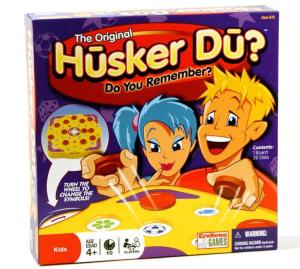
GREG NORTON: Yeah! The Mary Tyler Moore show was set in Minneapolis. That’s our home town, and I think it’s one of those things where Bob just started playing it at soundcheck one night and we ended up playing it for the encore that night, and everybody’s like ‘Yeah!’ Just loving it and freaking out. It just became kind of a signature thing for us so we put the Mary Tyler Moore theme song on the B-side of “Makes No Sense At All,” the single from Flip Your Wig. It was a fun thing to do and a nod to where we’re from. And we also recreated the opening of the Mary Tyler Moore show for a video.
PHAWKER: Did you used to watch that show as a kid when it was on in the ‘70s?
GREG NORTON: Yeah. I think every kid growing up in the ‘70s watched that show. I’m not sure if Bob did, but I don’t know.
PHAWKER: In my estimation, having thirty years between then and now, the high point of the band seems to be Flip your Wig. That seems to be your masterpiece. It seems to be without question that if the Martians landed tomorrow and said “Tell us who Husker Du is,” you would play them that album. Agree or disagree?
GREG NORTON: I think Flip Your Wig was definitely a high water mark for the band. That year we had two records with New Day Rising, and then Flip Your Wig at the end of the year. But yeah, the songwriting and the production…it’s the first record without [long time producer] Spot overseeing what’s going on. Plus the shows that year were spot on. They were a lot of fun. It was a really good year.
PHAWKER: A very good year, indeed.
PORCUPINE + THE FLESH EATERS @ JOHNNY BRENDA’S FRIDAY MARCH 15TH

